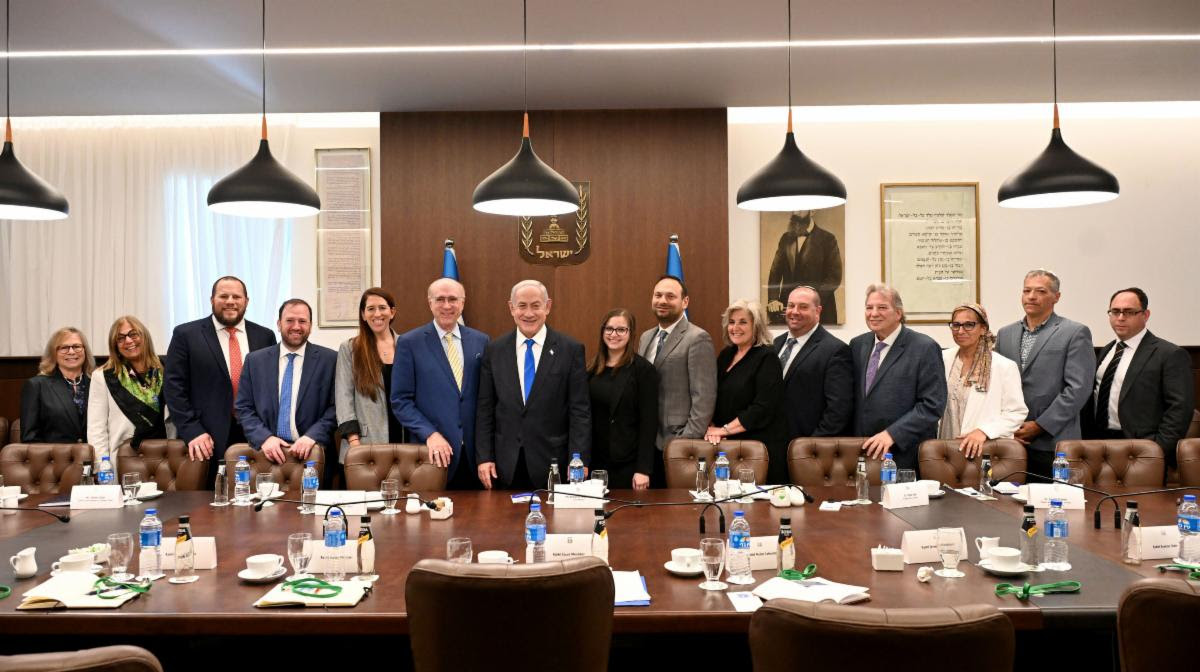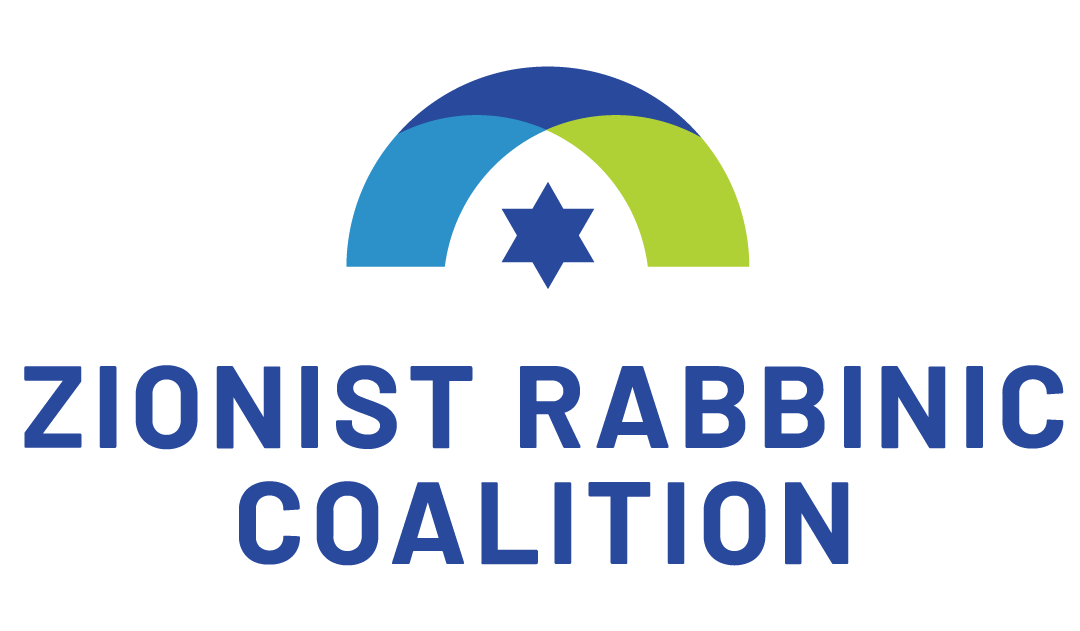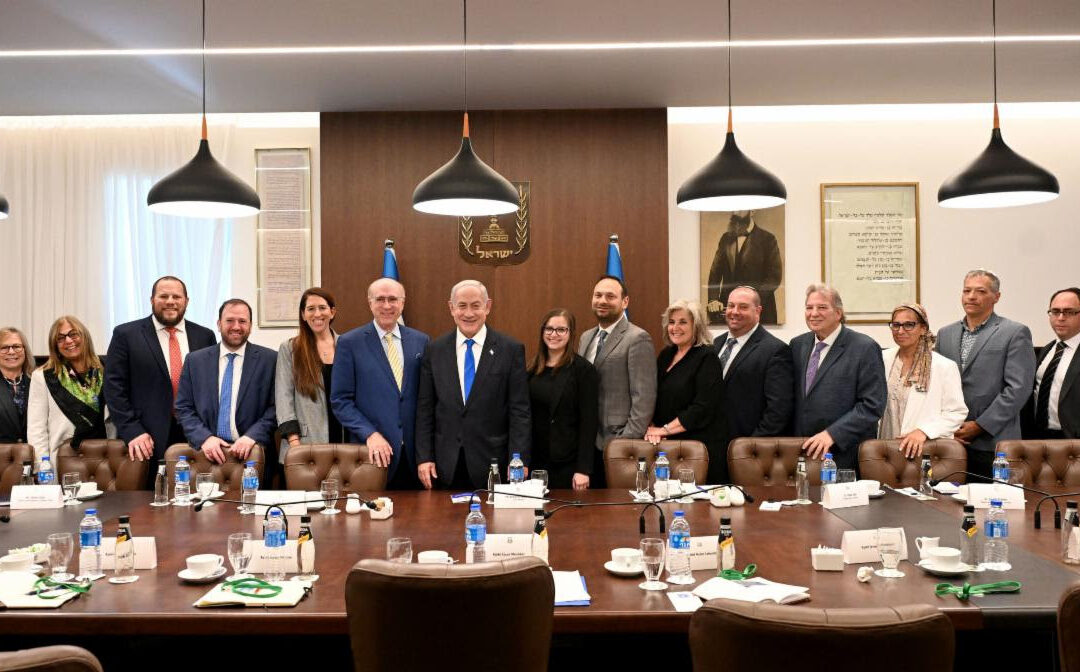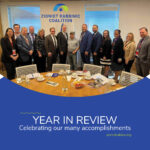A delegation of the Zionist Rabbinic Coalition has just returned from a highly successful mission to celebrate the Abraham Accords, where we were warmly welcomed and hosted as guests of the UAE, Bahrain, and Israel from June 21-29, 2023. For Shabbat, our delegation was hosted by Minyan On The Palm in Dubai.
In Israel, we met with a number of members of the Knesset and the Ministry of Foreign Affairs, as well as Tal Becker, Natan Sharansky, Rav David Stav, and Gil Troy. We had frank and open exchanges of ideas with Minister of Diaspora Affairs Amichai Chikli, Minister of Heritage Amichai Eliyahu, and Foreign Minister Eli Cohen. A highlight of our meetings was the hour we spent with Ron Dermer and Prime Minister Benjamin Netanyahu. The Prime Minister responded to questions and engaged in a discussion about judicial reform and other current issues facing Israel, including the relationship between the Diaspora and Israeli Jewish communities. While the Prime Minister’s remarks were off the record, below is a transcript of what we discussed with him and the questions we posed:
Remarks to the Prime Minister of Israel, Benjamin Netanyahu
Meeting with the Zionist Rabbinic Coalition
Presented by Rabbi Stuart Weinblatt
June 29, 2023
Thank you for meeting with us today. I want to begin by telling you how much I enjoyed reading your autobiography. Not only does it provide an insight into your life and how you have met the challenges you have confronted over the years, challenges that would have broken anyone without your fortitude and determination, it offers insights into your vision and what motivates you. Your explanation of Zionism and the raison d’etre for the need for there to be a Jewish state should be required reading by anyone who is involved in the Middle East or anyone who questions why Israel was created.
The fact that you are taking time from your very busy agenda with so many pressing matters before you, including the threat posed by Iran and what is happening in Jenin, the constant battle to delegitimize Israel and so many other issues — is a tribute to you, and shows your interest in strengthening the relationship with us and the American Jewish community. It says a great deal about you and how you view and value this relationship.
And without meaning to be chutzpahdik, our meeting with you says a great deal about us, about who we are and what we represent.
I say this, because, in the spirit of having an open and honest dialogue, you and we, both know that, sadly, and I take no joy in saying this, there is so much vitriolic polarization here and in the American Jewish community, that you have had to decline invitations to speak in person to some Jewish groups, and there are even some who have expressed a reluctance to meet with you.
I hasten to add – we, the Zionist Rabbinic Coalition, do not share that sentiment. We are devoted to closing the gap between our communities and to building bridges, not to putting up walls that separate and divide us. In fact, when Israel was fighting its war with Hamas and there were those who issued statements critical of Israel, we issued a statement signed by over 600 called, “A Rabbinic Letter of Support for Israel.”
We are here to engage in a dialogue, and to learn and understand. This is what we did when we began our journey as guests of the UAE and Bahrain, to celebrate the Abraham Accords, and to go back and help our communities appreciate the significance of the dramatic breakthrough for Israel.
So, the first issue I invite you to address is what to do about the unhealthy atmosphere. Just to be clear — I am referring to the fact that while most Israelis recognize the need to reform the judiciary, the way it was introduced and certain aspects of the proposals may have been overreach, unleashing a torrid response.
We do not subscribe to the accusations that Israel is becoming anti-democratic, and we recognize that many other factors are fueling the demonstrations. Nevertheless, since the opposition has crafted a narrative that they are fighting to preserve democracy, implying that the government and its proposals are anti-democratic, they cannot be ignored.
And, again to be open and honest, a source of some of the alienation and polarization are some statements made by some of the members of your government.
So the question is — What can you do, and what do you plan to do to de-escalate the tensions, and coupled with that — what can we, as friends, supporters and lovers of Israel do to help?
The Prime Minister responded, explaining the need for judicial reform and that Israel is, was and will remain a democracy – referring to Socrates and Plato in his discussion of democracy, and discussed some of the specifics of the proposals.
What Prime Minister Netanyahu said, along with all of his remarks in our meeting are off the record.
As a follow up, as you are surely aware, there are those who have appealed to American Jews to intervene and get involved in Israel’s internal affairs. While we believe that the best thing Jews in the Diaspora can do at this time is to urge whatever side we favor to come to the table to find a compromise, there are those in Israel who say we should get involved and express our opinions – not just to Israel, but even to members of the US Congress.
So the question we would like to pose to you is – What do you believe should be the role of Diaspora Jews in Israel’s internal affairs?
Response by the Prime Minister to this question.
When we were here in 2018, a member of your staff met with us at Ezrat Israel (the egalitarian area near Robinson’s Arch) and showed us plans for the area. We were just there, and nothing has changed or moved forward. It still looks the same.
When we met with Diaspora Affairs Minister Avihai Chikli just prior to our coming to your office, he offered an interesting proposal, one which provides a different way of framing the matter. He pointed out that there is no way that a family can approach the Kotel together. If they wish to
put a note in the Wall, they cannot do it – as it is divided between a section for men and for women. He said there should be a way for people to be able to approach the Kotel together, as a family.
Mr. Prime Minister, if the Ezrat Israel section were extended to the Wall, with this as justification for doing so, this could be a novel solution which would allow the previously promised changes to be implemented, while at the same time avoid the problems, opposition and obstacles encountered when considering making any of the changes to this area.
The Prime Minister replied to the question.
Finally, our last meeting was in October of 2018. We really need to meet more frequently.
In that spirit, I extend an invitation to you to come and speak at the Second Annual Conference of the Zionist Rabbinic Coalition in Washington, D.C. August 14 – 16, where our theme is – “Israel Advocacy: More Challenging and More Important Than Ever.”
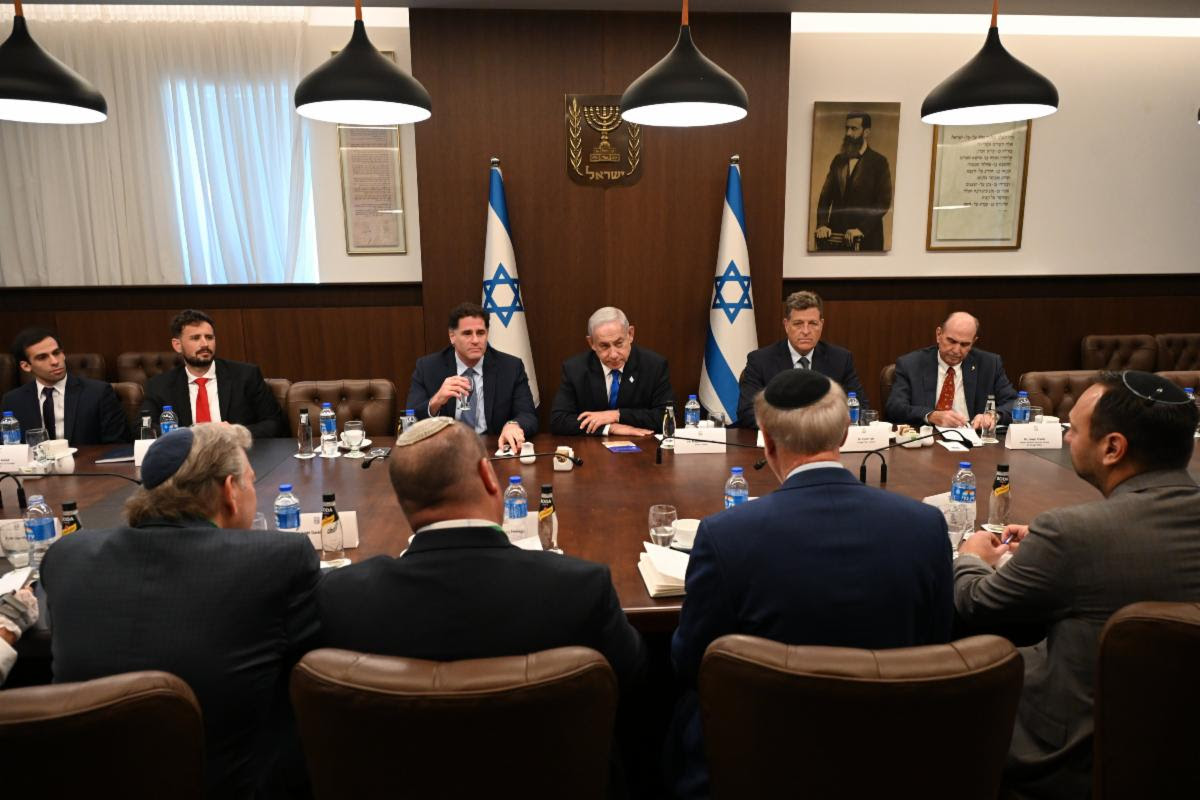
ZRC Delegation meets with Israel Prime Minister Benjamin Netanyahu
